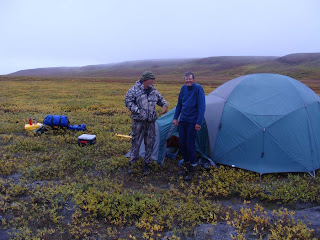
We had a nice pen of six at the start of the summer. They were most comfortable in their urban compound, very much away from the hustle and bustle of a more dangerous rural setting. The single most viscous predator was the gray squirrel that lived in the big maple. So we thought.
In one of our travels we received a call from the neighborly vegetarian that was looking out for the girls. It seems the coup had a new occupant, another bird that didn't have a seed-eating beak, nor claws for scratching the buggy earth, but rather a notorious raptor, commonly called a chicken hawk. The young, probably Rough Legged Hawk, had found he was capable of killing large chickens but didn't really know what to do with them other than hang out and dispatch them at random. Thus, three docile layers lost there privileged lives.
The wonderful vegetarian caretaker being true to her convictions gave them a nice Christian burial in the garden rather than having about two weeks of endless chicken fricassee and a nice selection of buffalo wings. I would have buried them in my gullet as a gesture of appreciation.

We presently are in the company of three fine surviving hens, two Barred Rocks and an Aricana. In the winter they hunker down and almost hibernate except to aggressively consume huge volumes of grain. The top of the coop is now wire covered, the miserable juvenile Hawk has moved to ravage other urban settings. I wish the bad boy raptors would just stick to miniature Poodles.




























 f the foundlings that required only decorative sugar and some
f the foundlings that required only decorative sugar and some 










 Manila last week was flooded. Officials said they were not able to keep up with infrastructure that would enable flood control for an expanding population. Manila has 12 million citizens in the city and a few million more in the surrounding area. This all speaks for itself even though the authorities do not have ears to hear it, nor the eyes to see it. It would appear that in the future there were still be less infrastructure per person than there is today and there will be more floods.
Manila last week was flooded. Officials said they were not able to keep up with infrastructure that would enable flood control for an expanding population. Manila has 12 million citizens in the city and a few million more in the surrounding area. This all speaks for itself even though the authorities do not have ears to hear it, nor the eyes to see it. It would appear that in the future there were still be less infrastructure per person than there is today and there will be more floods.





